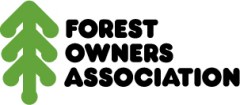PESTS AND DISEASES OF FORESTRY IN NEW ZEALAND
Parasitoid of the sugary lerp (Glycaspis granulata) discovered
Scion is the leading provider of forest-related knowledge in New Zealand
Formerly known as the Forest Research Institute, Scion has been a leader in research relating to forest health for over 50 years. The Rotorua-based Crown Research Institute continues to provide science that will protect all forests from damage caused by insect pests, pathogens and weeds. The information presented below arises from these research activities.
From Forest Health News No. 96, May 2000.
Last month we reported the finding of the brown lace lerp (Cardiaspina fiscella) parasitised by Psyllaephagus gemitus in Northland, Auckland and Coromandel (FHNews 95:1, April 2000). During the search for this parasitoid many collections of lerps were made from roadside eucalypts, in particular E. saligna, in the Bay of Plenty. These collections included not only C. fiscella but also the sugary lerp (Glycaspis granulata) which has been known in New Zealand since 1986. One collection of G. granulata from near Katikati had obvious exit holes, similar to those caused by P. gemitus, in their protective lerps.
Parasitoids were successfully reared from some of the parasitised G. granulata nymphs, and it was immediately apparent that these were not P. gemitus.
These have been confirmed as the Australian Encrytid parasitoid Psyllaephagus quadricyclus by Jo Berry at Landcare Research. This is the first record of this parasitoid from New Zealand. Its impact on G. granulata will be monitored from samples arriving at the Forest Health Reference Laboratory.
Toni Withers, Forest Research
This information is intended for general interest only. It is not intended to be a substitute for specific specialist advice on any matter and should not be relied on for that purpose. Scion will not be liable for any direct, indirect, incidental, special, consequential or exemplary damages, loss of profits, or any other intangible losses that result from using the information provided on this site.
(Scion is the trading name of the New Zealand Forest Research Institute Limited.)

 Farm Forestry New Zealand
Farm Forestry New Zealand

